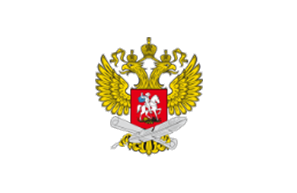TBFVnet
A network of laboratories that study and survey Tick-Borne FlaviViruses
Research, health and social priorities require a multidisciplinary and cross-border approach. Our aim is to develop tools and protocols and to transfer this know-how to neighboring countries.

Ticks
Tick-borne flaviviruses (TBFVs) are viruses that are transmitted by ticks and that cause severe disease in humans and animals. This project focuses on four TBFVs: Tick-borne encephalitis virus (TBEV), Powassan virus (POWV), Louping-ill virus (LIV) and Omsk hemorragic fever virus (OHFV) that are a health problem in Central and Eastern Europe as well as in other countries. There are currently no antivirals for the treatment of TBFV infections. The only vaccine available is for TBEV.

Research
Research within TBFVnet is at the clinical and veterinary level aiming to (i) share expertise, protocols, and tools for the diagnosis and surveillance of TBFVs; (ii) investigate the molecular correlates of pathogenesis of TBFVs, and (iii) develop new antivirals.

Cooperation
Within this network, researchers work together across countries to study the biology and pathogenesis of TBFV disease. This will lead to develop new tools and procedures to increase prevention and treatment capacities. The integration of research and surveillance will create an international alliance to tackle TBFVs.
Spread of Tick-borne diseases
THE BIOLOGY OF TBFVs
TBEV is considered the most relevant arbovirus in Central and Eastern Europe and in Russia, with about 13,000 estimated human cases annually causing severe diseases. Over the last decade there has been a 300% increase in the number of TBEV cases in Europe.
Infection of the vector begins when a tick takes a blood meal from an infected host: usually a wild mammal of the forest. TBEV in the blood of the host infects the tick. Through its salivary glands the tick passes the virus to the next host. Humans can be infected, either by a tick bite or by consuming unpasteurised dairy products, and can further transmit the virus by blood transfusion.
IMPLEMENTED BY

Veterinary Research Institute
Czech Republic
The Veterinary Research Institute in the Czech Republic has a long-standing expertise in TBEV pathogenesis and antiviral discovery.

International Centre for Genetic Engineering and Biotechnology
Italy
The ICGEB is an intergovernmental organisation with strong expertise in TBEV biology and diagnosis.

Biomedical Research Center of the Slovak Academy of Sciences
Slovakia
Topics of research at the BRC include TBEV research in pathogenesis as well as the characterisation of wild viral strains.

Former partner - Chumakov FSC R&D IBP RAS
Russia
The Chumakov Institute in Moscow is a leader in Russia working with tick-borne flaviviruses.

Norwegian Institute of Public Health
Norway
The Norwegian Institute of Public Health has a wide knowledge of surveillance of TBFVs and LIV.

Former partner - Umeå University
Sweden
Umeå University in Sweden is specialized in the molecular biology of TBEV infection.
NEWS
Diagnostics, Communication and Networking – The Best of the TBFVnet Project
A network of labs that study and survey Tick-Borne Flaviviruses The best results stem from collaborative efforts of a great team of experts across nations. When the work of the virologists involved in the Tick-Borne FlaviVirus - TBFVnet project, was affected by the...
Are we more exposed to new viral outbreaks? Addressing the risk with a one-health approach.
Recent outbreaks of viruses such as Chikungunya, Zika, Yellow Fever, West Nile Fever, or Dengue, as well as the SARS-CoV-2 pandemic, have found us unprepared and vulnerable. The spread of these viral pathogens is...
Meet Our Partners
In a series of short videos, we hear directly from our partners and the roles of their institutes and research teams on the TBFVnet project. Daniel Ruzek, PhD, Associate Professor and Principal Investigator at the Veterinary...
For more information
This project is funded by Iceland, Liechtenstein and Norway through the EEA and Norway Grants Fund for Regional Cooperation
 The content of this website is made available under Creative Commons Attribution-NonCommercial-NoDerivatives 4.0 International License.
The content of this website is made available under Creative Commons Attribution-NonCommercial-NoDerivatives 4.0 International License.
PhD, Associate Professor, PI
ruzekd@paru.cas.cz
Veterinary Research Institute
Czech Republic
The Czech Republic is at the heart of the endemic area for TBFV, between Western Europe and the East. The research of the Veterinary Research Institute focuses on the pathogenesis of TBE, development and testing vaccines and antivirals and is also involved in national and international surveillance and diagnostic programs. Therefore, the Veterinary Research Institute is best placed to coordinate the activities of TBFVnet.

PhD PI
karganova@bk.ru
Former partner – Chumakov Federal Scientific Center for Research and Development of Immune-and-Biological Products of Russian Academy of Sciences
Russia
Dmitry Osolodkin,
PhD, Researcher
dmitry_o@qsar.chem.msu.ru
osolodkin_di@chumakovs.su

PhD, Head of Virus Ecology group, PI
boris.klempa@savba.sk
Biomedical Research Center of the Slovak Academy of Sciences
Slovakia
The Biomedical Research Center has long-standing expertise in TBEV-tick-mouse animal model. This expertise will allow characterization of new virus isolates in terms of their tick replication and transmission efficiency.

Åshild Kristine Andreassen
kristine.Andreassen@fhi.no
Norwegian Institute of Public Health
Norway
NIPH will sequence and analyze the genome of TBE isolated viruses in relation to their inflammation potential to the central nervous system. This work will bring new knowledge to improve the diagnostic potential of encephalitis in humans.

PhD, Associate Professor, PI
anna.overby@umu.se
Former partner – Umeå University
Sweden
The Overby lab is developing a broad approach combining proteomics, molecular virology, advanced imaging. This approach applied both in vitro and in vivo will be useful to understand viral replication in depth. Novel whole brain 3D imaging of infected mouse brains will be applied to study TBEV pathogenesis in mice.

PhD, Group Leader Molecular Virology Laboratory, PI
marcello@icgeb.org
International Centre for Genetic Engineering and Biotechnology
Italy
The Molecular Virology Laboratory in Trieste, Italy is involved in virus diagnosis and studies the host cell response to TBEV infection. This work will make it possible to identify unique features critical for viral pathogenesis that can be exploited for antiviral therapy. The International Centre for Genetic Engineering and Biotechnology has the expertise to promote, facilitate, increment and assist international networking and communication.
Tea Carletti, PhD
Researcher
carletti@icgeb.org









